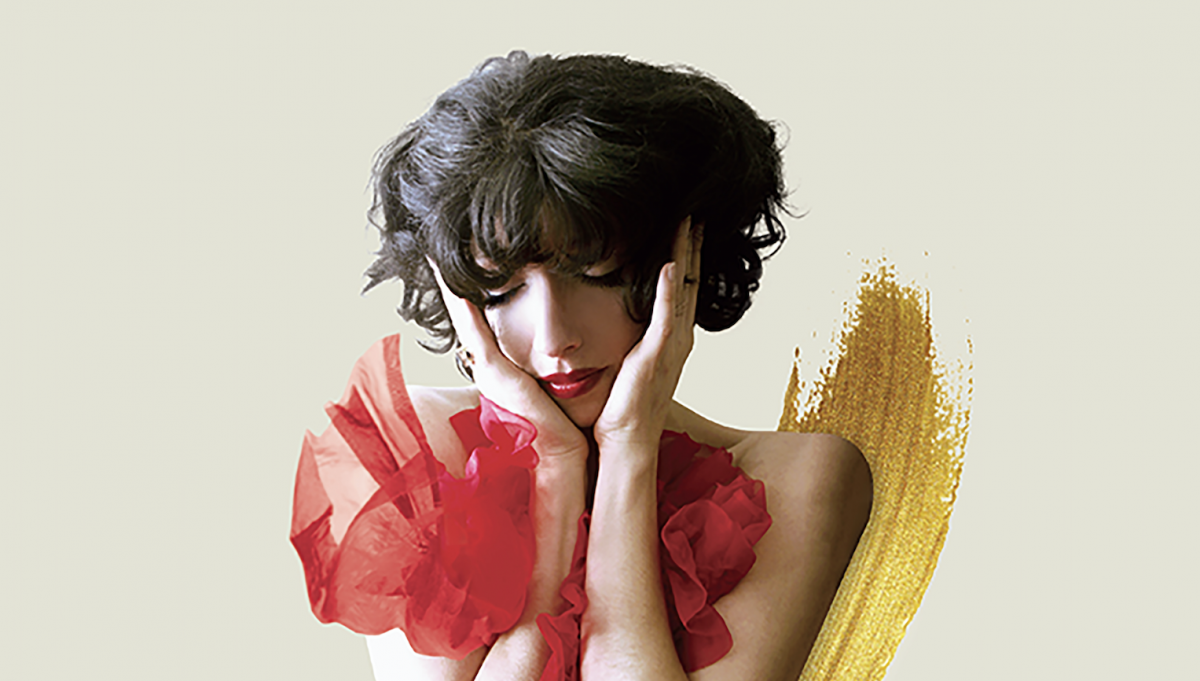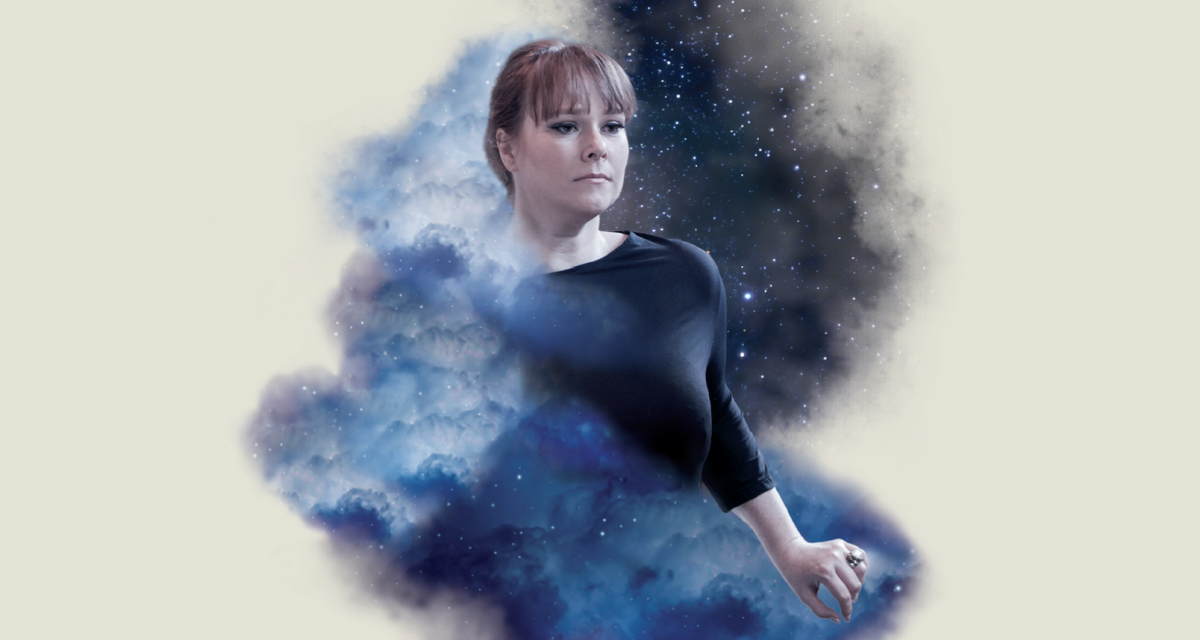From fables to fairy stories, from puppets to prostitutes, Richard Mills aims to run the operatic gamut.

Forget the old complaint that opera companies are just doing the same old same old. Victorian Opera seems determined to intrigue and educate its audiences by launching an eclectic mix of the known, the rare and the darn well obscure in their 2017 season. In a programme that mixes fables with fairy tales, popular chanteuse Meow Meow will explore her inner whore, Janáček and Respighi invite us into their contrasting magical forests, and sopranos Jessica Pratt and Greta Bradman come together for a concert performance of Bellini’s romantic gem La Sonnambula.
“Fables as a title is at once wide and specific,” explains Victorian Opera Artistic Director Richard Mills. “A fable is a story with dimensions, I think, and that allows a fair degree of latitude. Many of our fables are classic ones. But it’s also the image of the wood – of Dante’s selva oscura, the dark wood – in which discoveries are made.”
 Tis Pity: An Operatic Fantasia on Selling the Skin and the Teeth
Tis Pity: An Operatic Fantasia on Selling the Skin and the Teeth
The season opens in February with the return of cabaret’s hippest cat, Meow Meow in what is billed as a “fantastical history of the concubine and the courtesan” ’Tis Pity: An Operatic Fantasia on Selling the Skin and the Teeth follows on from her success as the echt-prostitute Anna in Brecht and Weill’s The Seven Deadly Sins, and will see the unstoppable Melissa Madden Gray selling herself nightly alongside the irrepressible Kanen Breen in a new operatic duo-drama with music being written by Richard Mills himself. “The music will be cast in the mode of some of my lighter pieces like Snugglepot and Cuddlepie, and with due reverence to Weimar and fin de siècle French cabaret. But hopefully it will have something of a contemporary pungency about it,” Mills explains, though he’s keen to point out that there will be a lot of fun to balance out the darkness.
The first of the off-the-wall operatic gems comes in the form of Ottorino Respighi’s The Sleeping Beauty. Despite the fact that they are seldom performed outside of his native Italy, the composer of The Pines of Rome and The Birds was a prolific writer of opera and this 1922 piece for puppets and singers is in his approachable, lyrical vein. Director Nancy Black returns to Victorian Opera following Manuel de Falla’s Master Peter’s Puppet Show. “It’s a curiosity in some ways, but it’s charming music, that’s the first thing,” says Mills, “and it’s something we can take also to Tasmania, which we will be doing. It’s also a piece which will appeal to family audiences as well as adults.”
For this production, the puppets will be designed by leading Creature and Puppet Designer Joe Blanck (Walking with Dinosaurs, King Kong). “It’s set in a village in Italy between the wars and it’s got an American character in it – Mr Dollar. It’s about a community telling a story, so the singers sit around and sing the various roles while the puppets enact it. The puppets are very beautiful, and are of various different kinds – they’re shadow puppets, they’re cloth puppets, they’re larger hand puppets. No marionettes that I know of yet, but you never know what might happen.”
Anyone fancying more mainstream fare should sign up for the return of star soprano Jessica Pratt who follows her appearances in Victorian Opera’s La Traviata and Lucia di Lammermoor with a concert performance as the sleepwalking heroine Amina in Bellini’s La Sonnambula at Hamer Hall in May. Rising star Greta Bradman will make her VO debut as the interfering inn-keeper Lisa while the Italian bass Paolo Pecchioli sings Count Rodolfo, the man into whose bedroom Amina unwittingly wanders.
 Soprano Jessica Pratt
Soprano Jessica Pratt
Bellini’s tale of rural romance will be followed by a rather different take on ‘country matters’ in Janáček’s story of human passions, courting foxes and the power of renewal. The Cunning Little Vixen is a work that “sits very high” in Richard Mill’s affections and will see director Stuart Maunder return to the company following his acclaimed staging of Sweeney Todd. Sydney Chamber Opera’s Artistic Director Jack Symonds will conduct Jonathon Dove’s chamber orchestration of the work. “Janáček is one of the great composers of the 20th century. What’s interesting about his music is its incredibly strong personality. You hear two bars of it and it can be by nobody else,” says Mills. “It will certainly look very beautiful – it must be an enchanted forest – but it won’t be directly anthropomorphic. It’ll be referentially anthropomorphic – I imagine there will be some fur on stage – but not in terms of bear suits and things like that. So tasteful, but stylised and clever.”
September will see Victorian Opera collaborating with Melbourne’s Malthouse Theatre to remount the legendary Tom Waits and beat poet William S. Burroughs’ musical fable The Black Rider: The Casting of the Magic Bullets. The production, which takes its inspiration from Weber’s Der Freischütz (but inhabits a totally different sound world), will be directed by Malthouse’s Matt Lutton with a cast that includes Paul Capsis, Meow Meow as the devil and Kanen Breen as Wilhelm. “Wilhelm needs to begin in quite a strong operatic voice and then descend into a cacophony of dirty, wild vocals and Kanen can do all of that,” Lutton told Limelight earlier this month. “Tom Waits’ songs are just so dirty and anarchic and it’s a really macabre story. It’s very exciting to be directing such a debauched work!”
Finally, the company is proving once again that it is at the forefront when it comes to engaging younger audiences with opera. Across the year it will present Australian premiere productions of works by Ernst Toch, Aaron Copland and Gordon Kerry. Toch’s 1927 operatic version of Hans Christian Andersen’s The Princess and the Pea will receive three performances in March, Copland’s The Second Hurricane will be the company’s Youth Opera production in October, and an operatic reworking of The Snow Queen, from Gordon Kerry and John Kinsella, has been commissioned specifically for community performances in Wodonga.
“It’s a fanciful, delightfully written piece – a fairytale opera,” says Mills of The Princess and The Pea, whose sound he likens to late Strauss. The Copland, which is about people gathering to prepare for a hurricane, Mills describes as a story “about a community finding resources within itself to support each other through difficult times.” Gordon Kerry’s new work will follow the VO template established with earlier projects such as Mills’ The Pied Piper, where Victorian metropolitan and rural communities come together in a work with roles for children, school children and older children as well as adult members of the community. “One of the things I’m very strong on is that singing is something a whole community can do,” says Mills. “Be it people aged 8 and people aged 80, they can work together.”
In an incredibly diverse season, Mills recommends an open-minded approach where people can experience something different and share the joy of discovery. “The thing I want to emphasise about opera is that it’s not about the so-called ‘Top Ten’,” he says. “It’s an incredibly diverse and interesting art form. I want to make possible the joy of both the recently minted as well as things that have fallen by the wayside for reasons that have often had nothing to do with their quality.”











Comments
Log in to join the conversation.